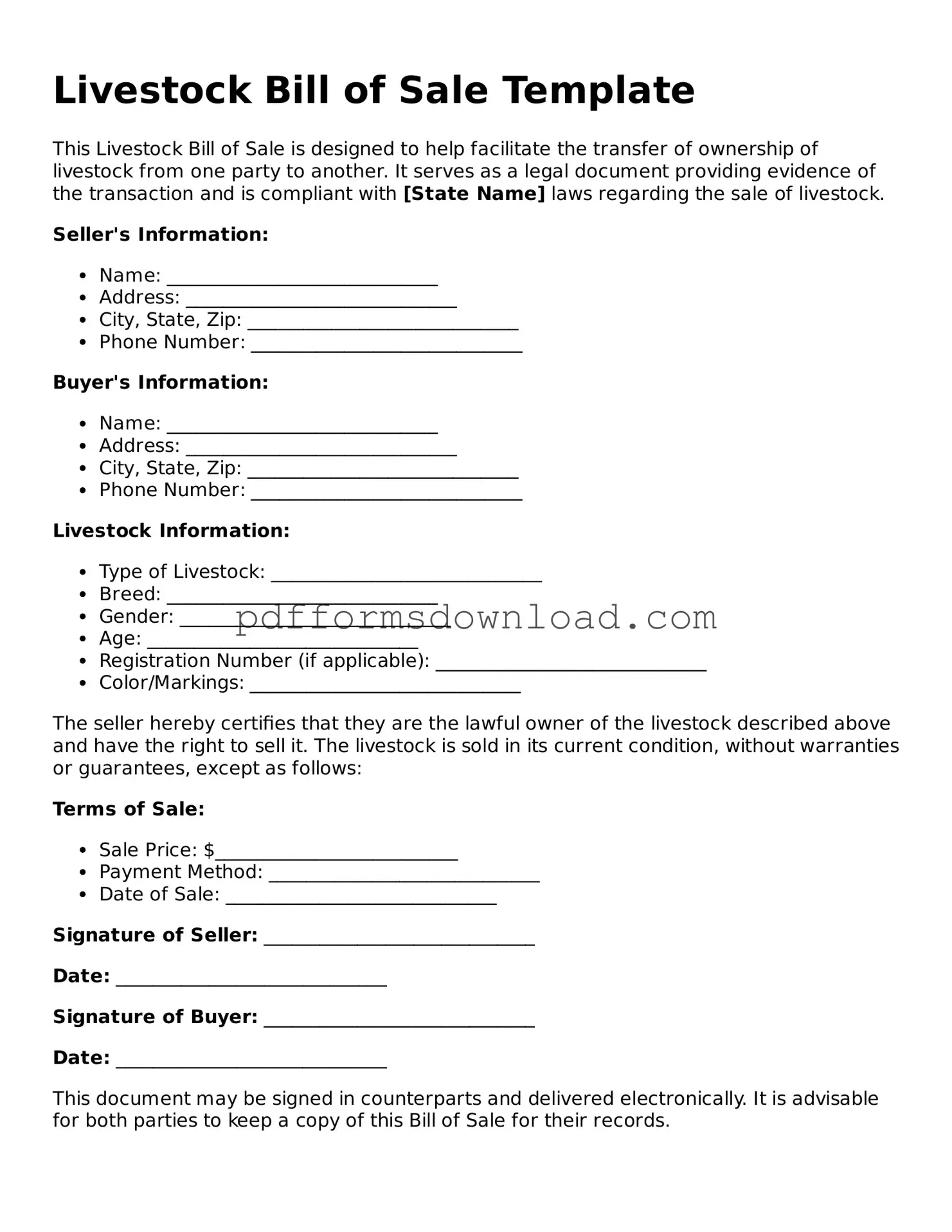Official Livestock Bill of Sale Document
A Livestock Bill of Sale form is a legal document that records the transfer of ownership of livestock from one party to another. This form serves as proof of the transaction and outlines important details such as the type of livestock, sale price, and date of sale. To ensure a smooth transaction, it's essential to fill out this form accurately; click the button below to get started.
Make This Document Now

Official Livestock Bill of Sale Document
Make This Document Now

Make This Document Now
or
Free PDF File
Your form is almost ready
Complete your Livestock Bill of Sale online — edit, save, and download easily.